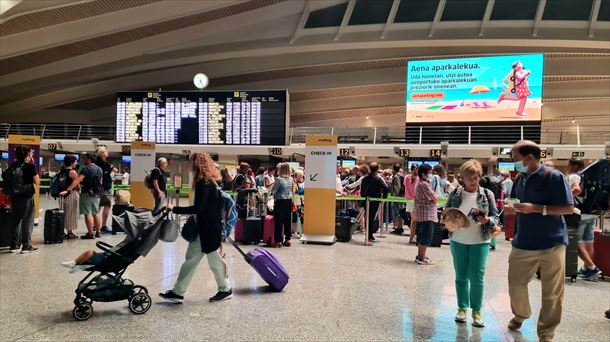In the Croatian parliamentary elections, Prime Minister Andrej Plenković’s ruling conservatives managed to retain their leading position. It is not yet certain that he will continue to rule; forming a coalition will likely be difficult. The left-liberal opposition alliance has not given up hope for a change of government.
After votes were counted in 99.7 percent of polling stations, Plenković’s Croatian Democratic Community (HDZ) won 61 of 151 mandates, while the left-liberal opposition alliance around President Zoran Milanović won 42 mandates, the electoral commission said.
Plenković, who appeared before his cheering party supporters well after midnight, spoke of a “convincing victory” for the HDZ for the third time in a row. He announced that he would start forming his third government on Thursday morning. Maintaining political stability and quickly forming a government are important in the face of the challenging geopolitical situation to ensure social and economic security, said the HDZ boss, who has been the head of Croatia’s government since 2016. In view of the opposition’s ambitions, he emphasized that the election winner must form a government.
The opposition is not giving up
The leader of the Social Democrats (SDP), Pedja Grbin, did not give up despite finishing in second place. “Two-thirds of citizens have shown that they want change. We will not let them down,” Grbin said. He announced that the left-liberal alliance would now hold talks to form a government.
The co-chair of the left-green party Možemo (We Can), Sandra Benčić, also said that the opposition’s goal of deposing the HDZ could still be achieved. She pointed to a scenario in which the SDP would form a minority government that would be tolerated by opposition parties from the left and right.
According to partial results, the right-wing extremist Homeland Movement (DP) was the third strongest force with fourteen mandates, followed by the bourgeois party Most (Bridge) with eleven mandates and Možemo with ten. Another five mandates went to smaller parties.
Coalition with right-wing populists?
The HDZ, which has so far governed with the support of minority representatives, will need a partner from the ranks of the opposition parties in the future. In an initial reaction, HDZ vice-chairman Gordan Jandroković was cautious about the issue of a possible coalition with the right-wing Homeland Movement, which Prime Minister Plenković previously kept at arm’s length.
However, after the HDZ, which previously had 66 seats, lost some mandates, the homeland movement could play a key role in forming a government. Their representatives also kept a low profile on election night, but emphasized their rejection of cooperation with Možemo and also the Serbian minority party SDSS, which had previously supported the HDZ government. Former HDZ leader and ex-prime minister Jadranka Kosor nevertheless described a “3P” coalition as possible, referring to the surnames of the party leaders of HDZ (Andrej Plenković), DP (Ivan Penava) and SDSS (Milorad Pupovac).
The Greens are making huge gains
The surprise of election night was the strong performance of the green party Možemo, which made huge gains. “We are now no longer a party of Zagreb, but are becoming a national party,” said Možemo MP Gordan Bosanac. According to a report in the newspaper ‘Jutarnji list’, the first contacts between Možemo’s party leadership and the Social Democrats (SDP), who lead the left-wing opposition alliance ‘Rivers of Justice’, took place on election night. Možemo had confirmed that he only wanted to support a coalition government without the participation of right-wing parties such as Most.
The turnout in the elections was surprisingly high. At 4:30 p.m., 50.6 percent of voters had voted, 16.6 percentage points more than four years ago.
Mud fights during the election campaign
The opposition alliance was informally led by President and former Prime Minister Zoran Milanović, as the Constitutional Court had formally banned him from running for office. The short and unusual election campaign was dominated by the heated discussion between Prime Minister Plenković and President Milanović. During the election campaign, the prime minister described the president as a “political scourge” and “constitutional violator”. He in turn called Plenković a “godfather of crime” and criticized “the most corrupt government in Croatian history.” He described the HDZ as a criminal cartel.
Source: Krone
I am Wallace Jones, an experienced journalist. I specialize in writing for the world section of Today Times Live. With over a decade of experience, I have developed an eye for detail when it comes to reporting on local and global stories. My passion lies in uncovering the truth through my investigative skills and creating thought-provoking content that resonates with readers worldwide.



